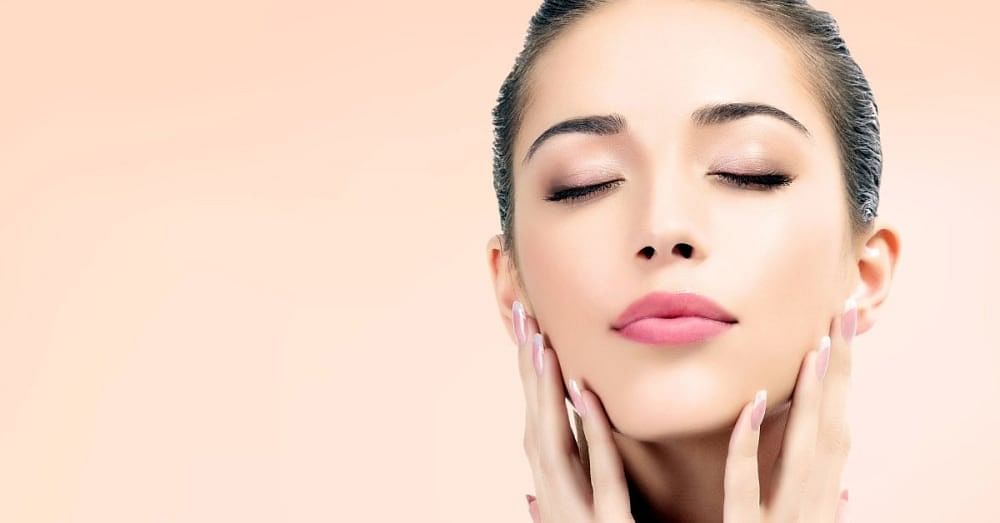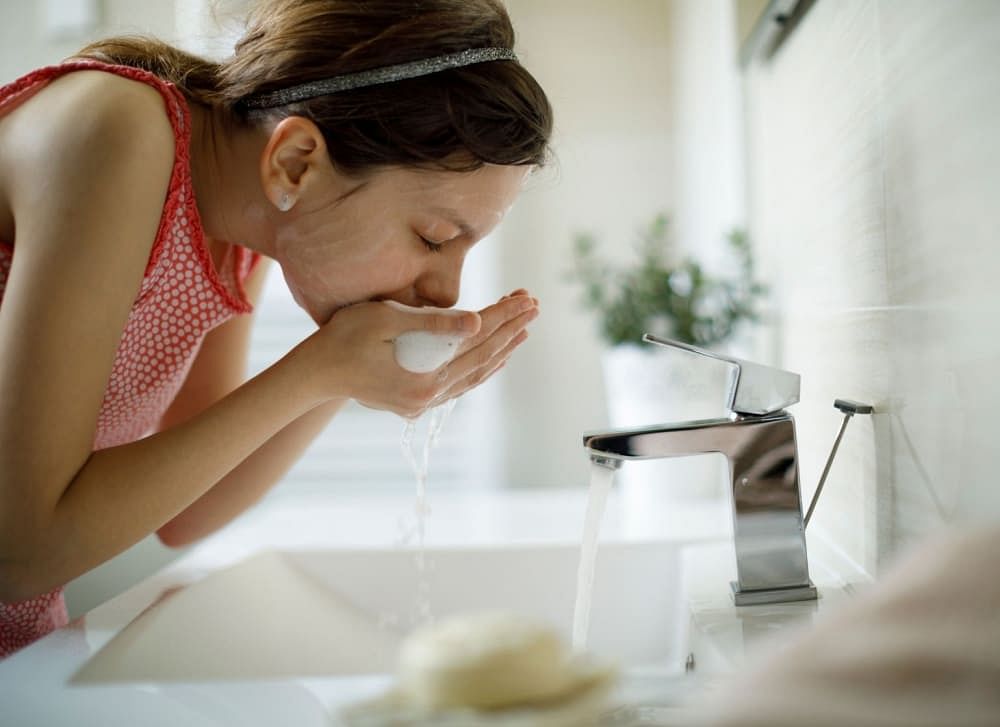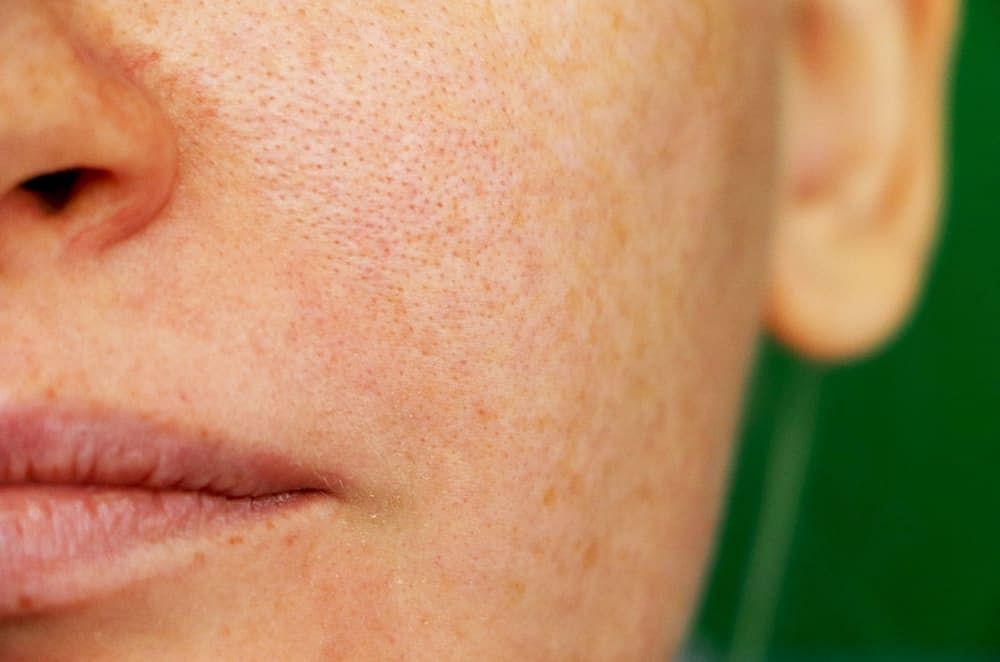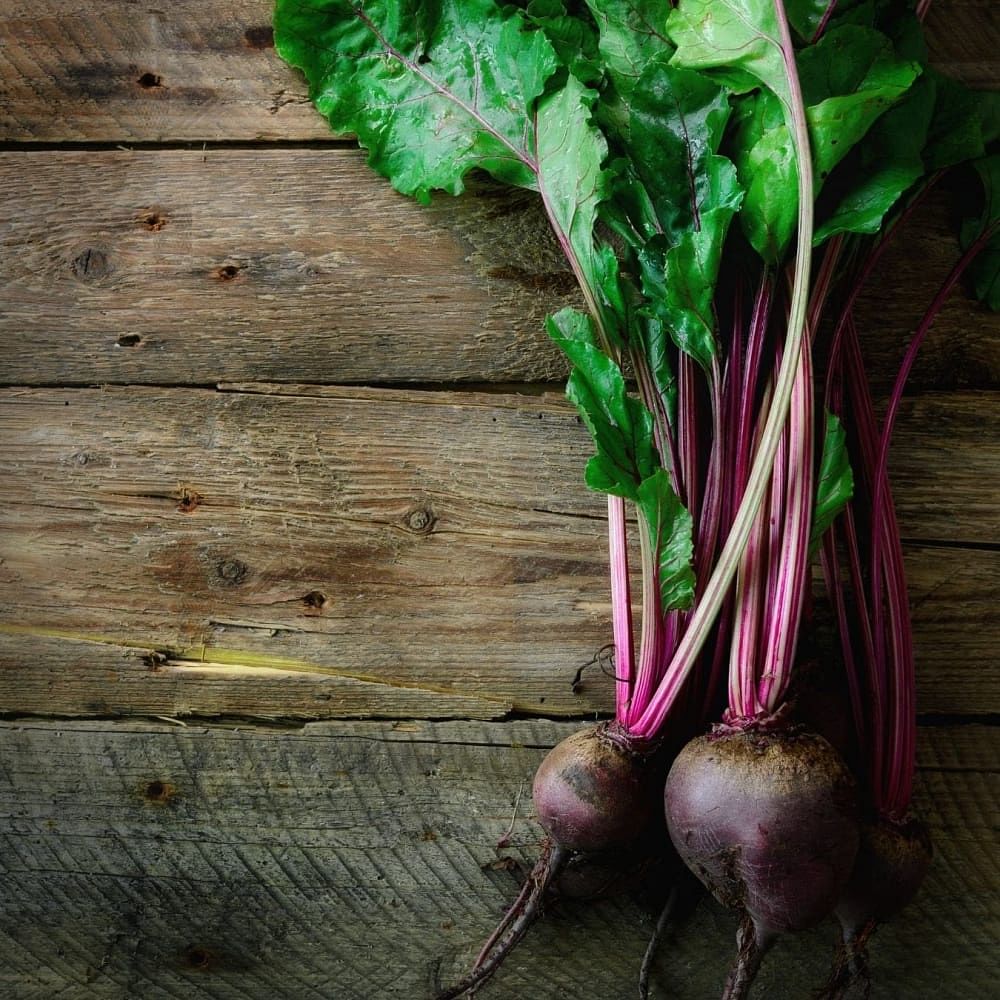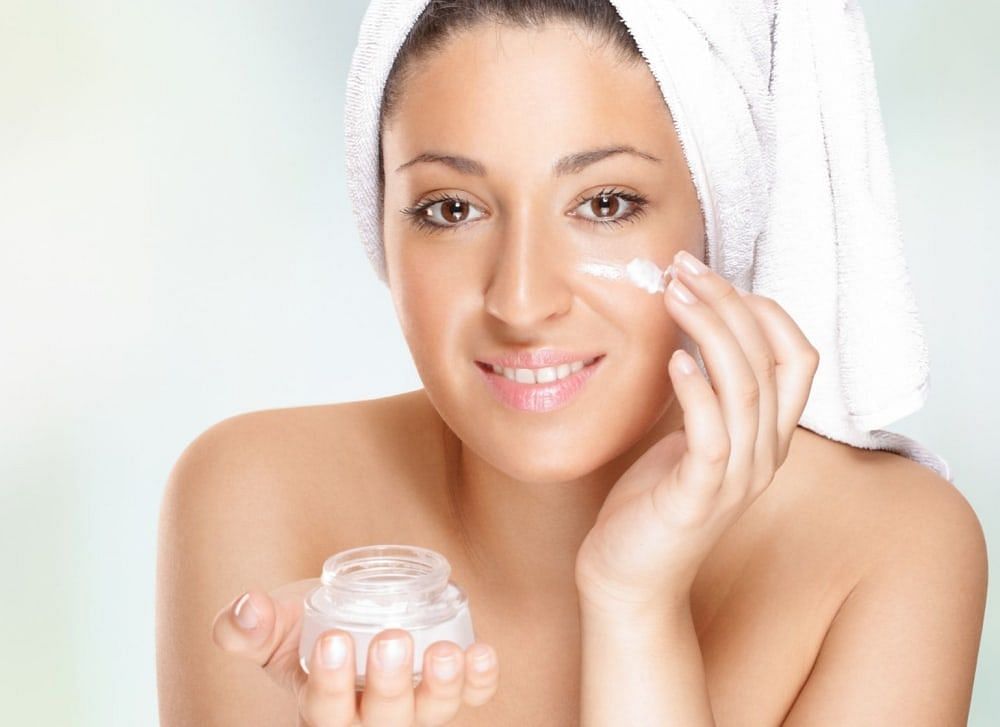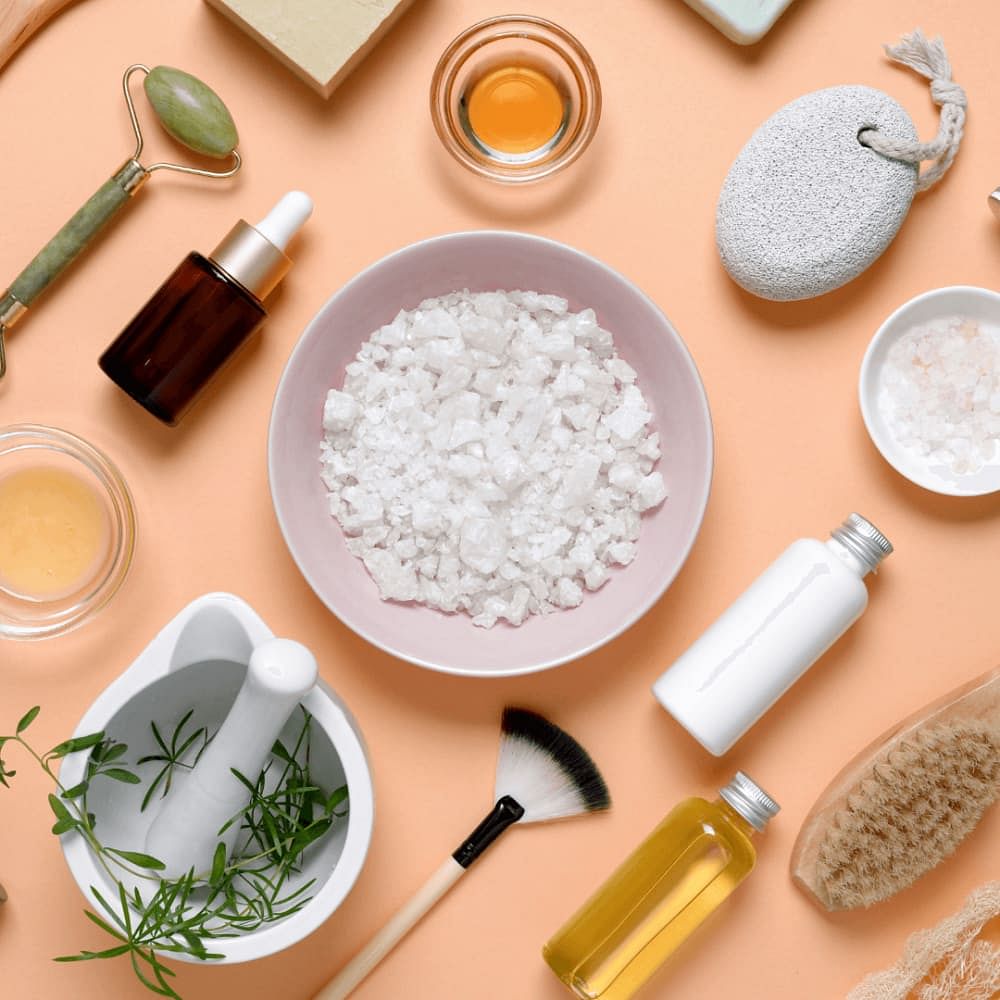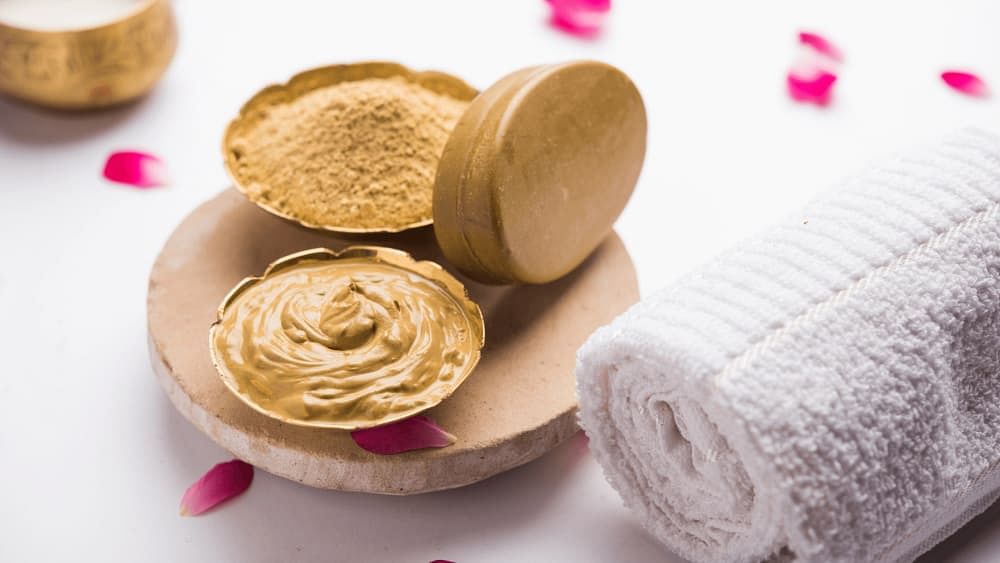Good skin is not just about appearance; it is a reflection of one’s overall health and well-being. It plays a crucial role in our confidence, self-esteem, and how we present ourselves to the world.
If you wish to achieve clear, radiant skin like never before, you must bid farewell to frustrating blemishes and welcome newfound confidence from your flawless skin. With the expert tips and advice mentioned in this article, you'll gain insights into proper cleansing, the transformative effects of nourishing foods, and the foundations of an effective skincare routine. So keep reading to find out!
How To Get Clear Skin?
In the daily hustle, everyone tends to miss out on skincare that piles on to give long-lasting skin issues such as acne, blemishes, breakouts, or textured skin. Here are 15 ways that would work as a holy grail to clear skin

1) Follow a consistent skincare routine: Cleanse, tone, and moisturize your skin twice daily using products suitable for your skin type.
2) Protect your skin from the sun: Apply sunscreen daily with a broad-spectrum SPF of at least 30 and seek shade when the sun is at its strongest.
3) Avoid touching your face: Touching your face transfers bacteria and oils, which can lead to breakouts.
4) Cleanse your face thoroughly: Use a gentle cleanser to remove dirt, oil, and impurities without stripping the skin of its natural oils.
5) Exfoliate regularly: Gently exfoliate your skin 1-2 times a week to get rid of dead skin cells and unclog pores.
6) Moisturize appropriately: Use a moisturizer that suits your skin type to keep it balanced and hydrated.
7) Always take off makeup before bed: Sleeping with makeup on can clog pores and lead to breakouts.
8) Eat a balanced diet: Consume fruits, vegetables, whole grains, lean proteins, and healthy fats to provide essential nutrients for your skin.
9) Stay hydrated: Drink plenty of water through the day to keep the skin hydrated and maintain its elasticity.
10) Get enough sleep: Aim for 7-8 hours of good quality sleep each night to allow your skin to repair and rejuvenate.
11) Manage stress levels: Practice stress-management techniques such as exercise, meditation, or deep breathing to reduce stress, which can contribute to skin issues.
12) Avoid smoking and excessive alcohol consumption: Smoking and alcohol can damage the skin, leading to premature ageing and skin problems.
13) Avoid harsh chemicals: Opt for skincare products that are gentle and free from harsh chemicals, fragrances, and irritants that can disrupt the skin's balance and cause irritation or breakouts.
14) Exercise regularly: Engage in regular physical activity to improve blood circulation, which can promote a healthy complexion by delivering oxygen and nutrients to the skin cells.
15) Practice good hygiene: Keep your bedding, towels, and makeup brushes clean to prevent the accumulation of bacteria that can transfer to your skin and cause breakouts or infections.
Consistency and patience are key when it comes to achieving clear skin. Adopting these practices as part of your daily routine will help you maintain a healthy and radiant complexion.
Also Read: Green Tea For Skin

How To Get Clear And Glowing Skin?
Are you prepared to step into the world of skincare wisdom where each step has been meticulously designed to bring out your skin's natural beauty? Look no further! In this captivating overview, we will unveil the step-by-step pathway to help you achieve the luminous and glowing skin you desire:
- As mentioned above, establishing a consistent skincare routine is paramount.
- Use a broad-spectrum sunscreen to protect the skin from the damaging effects of the sun. This shall prevent premature ageing and preserve the youthful radiance of your skin. (1)
- Beyond external care, nourishing your skin from within through nutrient-dense foods is the key to unlocking its true glow.
- Natural collagen-boosting foods and a diet rich in iron, vitamin C, and antioxidants are essential.
- Hydration is the secret elixir for luminous skin that helps to flush out toxins, maintain elasticity, and promote a natural glow.
- Pamper your skin. Treat yourself to a weekly face mask or indulge in facial massages to enhance blood circulation and give your skin the love and nutrients it needs.
Get A Pimple Free Skin
Achieving a pimple-free complexion is a common goal for many. If you desire smooth and clear skin, there are several steps you can take.
- First and foremost, maintain a skincare discipline that includes gentle cleansing, toning, and moisturising.
- Avoid picking or popping pimples, as this can lead to inflammation and scarring.
- Also, choose non-comedogenic skincare products that suit your skin type.
- Clean your face by washing it twice daily and removing makeup before bed.
- Proper hydration, a balanced diet, and stress management can also contribute to healthier skin.
Also Read: Acne-Prone Skin: What is it, Causes, How To Take Care of It!

Tips On How To Clear Skin
Here are a few additional tips you can adopt to improve the clarity of your skin:
- Avoid excessive makeup
- Exercise regularly
- Change pillowcases regularly
- Extend your skincare routine beyond your face, including your neck and chest.
Also Read: How to Get Fair Skin - Is it Possible?

Natural Ingredients To Get Clear Skin
When it comes to natural ingredients for clear skin, several have shown scientific evidence of their effectiveness. Here are a few scientifically supported natural ingredients:
1) Tea Tree Oil
This essential oil has antimicrobial properties that can help combat acne-causing bacteria. Studies have found that applying a 5% tea tree oil gel can reduce acne lesions and inflammation.
2) Witch Hazel
Witch hazel is a natural astringent that helps tighten pores and control excess oil production. It also has anti-inflammatory properties that can soothe irritated skin.
3) Green Tea Extract
Green tea contains antioxidants called catechins, which have been found to have anti-inflammatory and antimicrobial effects. Applying green tea extract topically or consuming it may help reduce acne and promote clearer skin.
4) Aloe Vera
Aloe vera gel has soothing and anti-inflammatory properties, making it effective for calming irritated skin. It can also help reduce acne inflammation and promote healing.
5) Jojoba Oil
Jojoba oil closely resembles the skin's natural sebum, making it a suitable moisturizer for all skin types. It helps regulate oil production and keeps the skin hydrated without clogging pores.
6) Honey
Honey has antibacterial properties that can help reduce acne-causing bacteria. It also has anti-inflammatory effects and promotes wound healing. Applying raw honey as a mask or spot treatment can be beneficial for clearer skin.
7) Turmeric
Turmeric contains a compound called curcumin, which has antioxidant and anti-inflammatory properties. It may help reduce acne and calm irritated skin when applied topically or consumed orally.
While natural ingredients can benefit the skin, it's essential to consider individual sensitivities and allergies. Before using any new ingredient, perform a patch test and consult a dermatologist if you have any specific skin concerns or conditions.

What Causes Marks On Your Face?
Various factors can cause marks on the face. Some common causes include:
1. Acne
2. Sun exposure
3. Injuries or trauma
4. Skin conditions
5. Allergies or irritants
6. Hormonal changes
It's important to remember that everyone's skin is unique, and the causes and appearance of marks on the face may vary from person to person. If you have concerns about spots and blemishes on your face, it is best to visit a dermatologist and get the correct advice!
How To Clear Dark Spots On the Face?
Clearing dark spots from the face can seem very challenging. Luckily, we’ve got four main ways using which you can try to clear off dark spots from your face. These are
Also Read: 10 Best Home Remedies for Pimples for Oily Skin
1) The Power of Vitamin C
Incorporate products containing vitamin C into your skincare routine. Vitamin C is famous for its brightening properties and can help fade dark spots over time.
2)Exfoliate Regularly
Exfoliation helps remove dead skin cells, allowing fresh and brighter skin to emerge. Look for chemical exfoliators like alpha hydroxy acids (AHAs) or beta hydroxy acids (BHAs) that can gently slough off the top layer of the skin, reducing the appearance of dark spots.
3) Harness the Benefits of Retinoids
Retinoids, derived from vitamin A, can effectively fade dark spots.
4) Targeted Spot Treatments
Use treatments specifically targeting dark spots. Ingredients like kojic acid, hydroquinone, or azelaic acid are known for reducing hyperpigmentation.
It is also essential to consult with a dermatologist for personalized advice, especially if your dark spots are persistent or have underlying skin conditions.
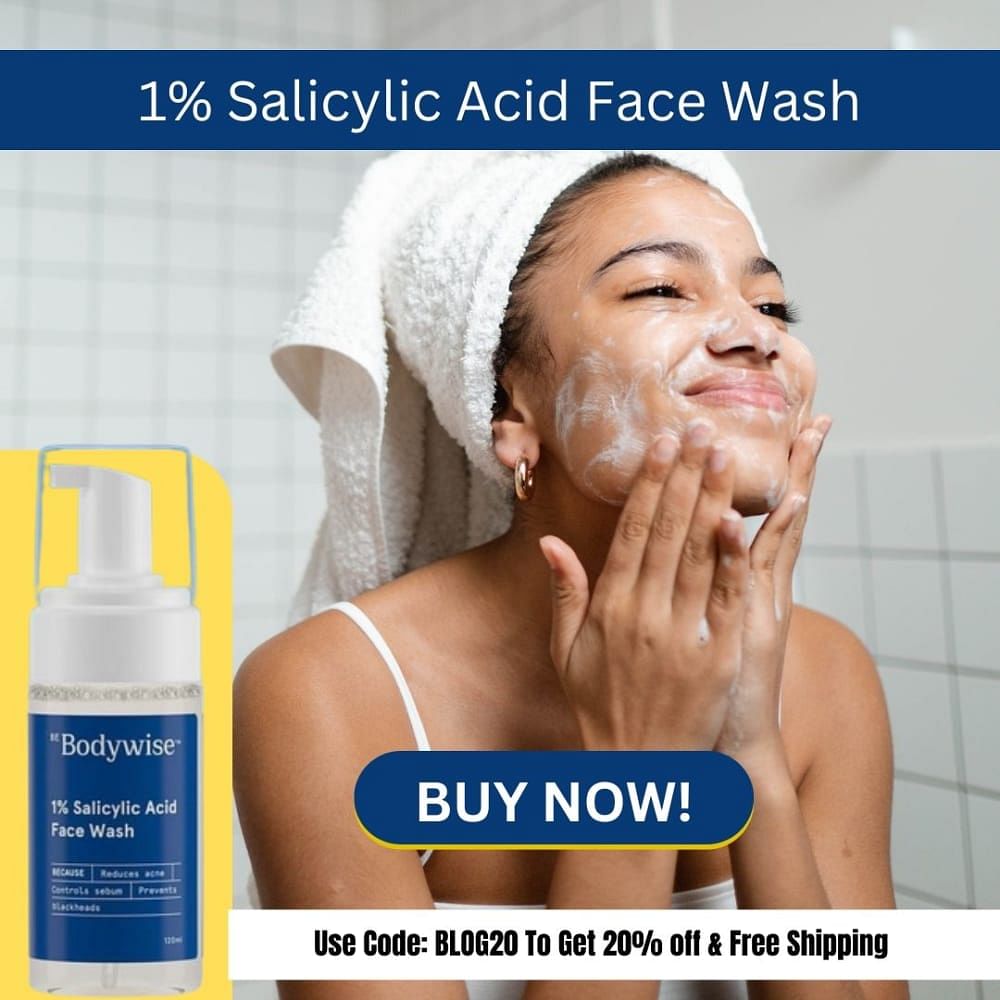
What Is Acne?
Acne is a common skin condition that occurs when hair follicles become clogged with dead skin cells, oil, and bacteria. It typically manifests as pimples, blackheads, whiteheads, or cysts on the face, chest, back, or other body areas. Acne can range from mild to severe and can affect individuals physically and emotionally.
What Are The Types Of Acne?
There are several types of acne, each characterised by different symptoms and appearances. The common types of acne include: (2)
1) Whiteheads: These are small, closed bumps with a white or flesh-coloured appearance. They occur when pores become clogged with oil, dead skin cells, and bacteria beneath the skin's surface
2) Blackheads: Blackheads are similar to whiteheads, but the clogged pores remain open, allowing the trapped material to oxidize and turn dark. They appear as small, black or dark brown bumps on the skin's surface.
3) Papules: Papules are small, red, inflamed bumps without a visible centre or pus. They are typically tender to the touch and can be sensitive or painful.
4) Pustules: Pustules are larger, pus-filled bumps with a red base. They often have a white or yellowish Centre and are surrounded by red, inflamed skin.
5) Nodules: Nodules are larger, solid, painful bumps that develop deep beneath the skin's surface. They are usually firm and can persist for weeks or months.
6) Cystic Acne: Cystic acne is the most severe form of acne. It consists of large, painful, inflamed cysts or nodules filled with pus. Cystic acne can leave deep scars and requires medical intervention for effective treatment.
Causes
The main factors contributing to acne development include: (2)
- Excess Oil Production: Increased oil production by the sebaceous glands can lead to clogged pores and acne formation.
- Dead Skin Cells: Shedding dead skin cells can mix with excess oil, forming a plug that blocks the hair follicles.
- Bacteria: Propionibacterium acnes, a bacteria naturally present on the skin, can multiply within clogged pores and contribute to inflammation and the formation of acne lesions.
- Hormonal Changes: Hormonal fluctuations, such as during puberty, menstruation, or hormonal imbalances, can stimulate the sebaceous glands, leading to increased oil production and acne breakouts.
While acne is most commonly associated with adolescents, it can affect individuals of all ages. Factors like stress, certain medications, and lifestyle choices can also influence the severity and frequency of acne breakouts.
Home Remedies For Clear Skin
Some popular home remedies for clear skin include:
1. Cleansing with honey
2. Exfoliating with oatmeal and yoghurt
3. Applying aloe vera gel
4. Using green tea as a toner
5. Moisturizing with coconut oil or almond oil
6. Applying homemade face masks using household ingredients like chickpea flour, sandalwood powder, vegetable and fruits mashed depending on your skin type.

Treatments For Clear Skin
There are several popular treatments available for achieving clear skin. Here are a few examples:
1. Topical Retinoids: This treatment is effective for treating acne, reducing the appearance of fine lines and wrinkles, and improving overall skin texture.
2. Chemical Peels: This can help improve acne, reduce hyperpigmentation, and enhance skin tone and texture.
3. Laser Therapy: Laser treatments work by targeting specific skin layers, stimulating collagen production, and reducing pigmentation irregularities, scars, and wrinkles.
4. Microdermabrasion: Microdermabrasion helps remove dead skin cells, unclog pores, and improve the overall texture and appearance of the skin.
5. Photofacial/ IPL Therapy: This treatment targets and reduces pigmentation irregularities, sunspots, and blood vessels. It can help improve skin tone and reduce the signs of ageing.
6. Chemical Exfoliants: Over-the-counter chemical exfoliants containing alpha hydroxy acids (AHAs) or beta hydroxy acids (BHAs) can gently remove dead skin cells, unclog pores, and improve skin texture and tone.
Also Read: Top 30 Best Foods for Glowing Skin ~ Nutritionist Recommended
FAQs
1) How can I make my face clear?
Establishing a regular skincare routine is important to achieve clear skin. This includes
- Cleanse your face twice daily.
- Tone and moisturise to keep the skin hydrated.
- Protect the skin from sun exposure by applying sunscreen.
- Avoid touching the face frequently, as it can transfer the bacteria and oils from your hands to your skin.
- Maintain a healthy lifestyle by consuming a balanced diet, exercising regularly, and getting enough sleep, which can contribute to overall skin health.
2) What foods help clear skin?
Certain foods can contribute to clear skin by providing essential nutrients and antioxidants. Include fruits and vegetables rich in antioxidants, such as berries, spinach, kale, and carrots, in your diet. These foods help fight free radicals and promote a healthy complexion. Omega-3 fatty acids present in fish like salmon and mackerel can also support skin health. Additionally, foods rich in vitamins A, C, and E, such as citrus fruits, bell peppers, and almonds, can help maintain clear and healthy skin.
3) How can I get clear glowing skin fast?
While achieving clear and glowing skin takes time, certain steps can enhance your skin's appearance. Firstly, stick to a consistent skincare routine that includes cleansing, toning, and moisturising twice daily. Exfoliate gently once or twice weekly to remove dead skin cells and reveal a fresh complexion. Stay hydrated to maintain skin moisture and elasticity.
4) How can I glow my skin naturally?
To naturally enhance your skin's glow, drink adequate water daily to keep the skin hydrated and plump. Eat a balanced diet with plenty of fruits and vegetables, which contain vitamins and antioxidants that promote healthy skin. Avoid excessive sugar and processed foods, and use skincare products that are natural and gentle on your skin and avoid harsh chemicals. Additionally, exercise regularly and manage stress levels, as they can impact your skin's appearance.
5) How to get clear skin in 3 days?
While achieving clear skin within three days is challenging, you can take certain steps to improve your skin's appearance. Cleanse your face twice daily to remove dirt and excess oil. Exfoliate gently to unclog pores and remove dead skin cells. Use a non-comedogenic moisturiser to keep your skin hydrated without clogging pores. Apply spot treatments with ingredients like benzoyl peroxide or salicylic acid to target acne.
6) How can I clear my skin overnight?
While achieving clear skin overnight is not realistic, you can take steps to improve your skin's appearance before bed. Start by cleansing your face to remove makeup, dirt, and oil. Apply a spot treatment with ingredients like benzoyl.

